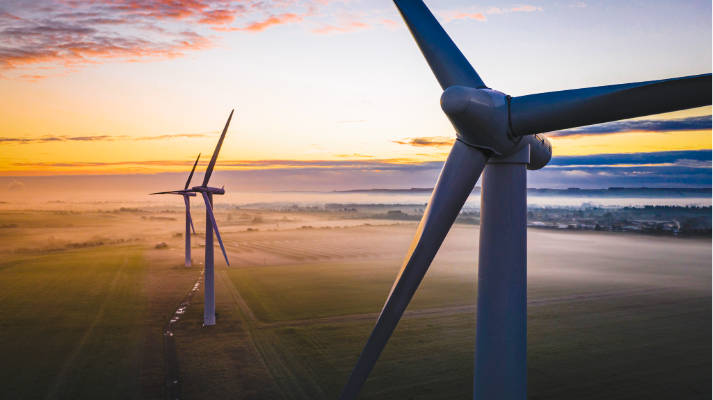
The renewable energy industry is one of many that were significantly impacted by the One Big Beautiful Bill Act (OBBBA) passed earlier this year, specifically due to the accelerated phaseout of key clean energy tax incentives previously established by the Inflation Reduction Act (IRA).
As a leader in the renewable energy sector, Colorado businesses will likely see significant impacts at the developer, company, and consumer levels. Following are some of the key effects that businesses and consumers might experience:
Decrease in new projects and possible cancelations
Due to the drastically shortened timeline for wind and solar projects to qualify for existing federal tax credits before they expire, projects must now begin construction before July 4, 2026, or be placed into service by the end of 2027. Thus, developers will be forced to accelerate their projects or risk losing those credits, which can cover between 30 and 50 percent of project costs.
This means that many planned projects, including those connected with Colorado’s clean energy mandates, are now potentially at risk of cancellation or delay due to financial constraints.
In response, Governor Jared Polis has moved to fast-track state approvals and greatly reduce administrative hurdles to push as many projects as possible to meet the “commence construction” deadline and lock in the incentives.
Impacts on specific sectors
Aside from the overarching impacts on projects and developers, the individual segments of the renewable energy industry will be affected on different levels.
-
- Commercial Wind & Solar: This is the most heavily targeted clean energy sector, due to the accelerated expiration of the extensive federal tax incentives.
- Residential Solar: The 30 percent tax credit for homeowners installing solar panels will end after December 31, 2025, raising out-of-pocket costs for Colorado homeowners.
- Electric Vehicles (EV): Federal EV consumer and commercial tax credits have been repealed, which is expected to slow the adoption of EVs and become a significant hurdle to Colorado’s goal of getting one million EVs on the road by 2030. There was a surge in EV sales prior to September 30, 2025 credits expiration. All car manufactures are forecasting a significant reduction in sales in the fourth quarter.
- Advanced Manufacturing: Adjustments to the Advanced Manufacturing Production Tax Credit and the potential decrease in demand for clean energy are expected to threaten the viability of new domestic clean energy manufacturing facilities that were encouraged by the Inflation Reduction Act.
- Geothermal, Nuclear, and Hydroelectric: These alternative power sources are expected to be the least impacted and remain eligible for their original IRA tax credits (or an only slightly reduced credit). Carbon capture and battery storage operations are also expected to maintain their incentives or face only mild adjustments.
Uncertain about how these changes could affect you or your renewable energy developments and agreements?
The experienced attorneys at Hackstaff, Snow, Atkinson & Griess are well-versed in the nuances of the renewable energy industry not only in Colorado but also in Kansas, Nebraska, New Mexico, Texas, and Wyoming. Contact us for a free consultation today!

